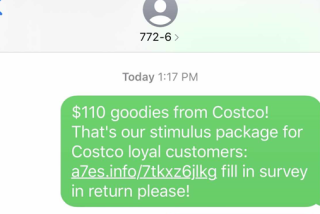FCC to Set Rules on Stock Brokers’ ‘Cold Calls’ : Telemarketing: While protecting the public from irksome solicitations, the rules might also stymie legitimate business.
- Share via
NEW YORK — The Federal Communications Commission is expected to establish rules regulating telemarketing next month that could severely restrict securities brokers from making unsolicited calls to potential clients.
The unsolicited calls, known as “cold calls,” are an important part of a broker’s business, especially for new brokers who use them to start client relationships, said Michael Esser, a principal at Edward D. Jones, a securities firm that deals primarily with individual investors.
“It’s the only way new salespeople can develop a clientele,” Esser said. “It’s going to be a major shift in the way securities firms do business.”
The FCC is expected to regulate cold calling in a broader law called the Telephone Consumer Protection Act of 1991, said William Jordan, a director at the Securities Industry Assn., a trade group. The law, signed by President Bush last December, was written to protect people from unwanted telephone solicitations.
The law is expected to limit computer-driven calls and automated phone solicitations. It also may help reduce high-pressure telephone pitches by stock brokers and other sales groups.
An FCC spokesman declined to comment on the agency’s plans for regulating cold calling in the securities industry.
Jordan said the FCC probably will limit the time when brokers can make cold calls to between 9 a.m. and 9 p.m. That’s reasonable, stock brokers said. “I don’t think it’ll have a bad effect,” said Mark Fischer, a corporate financial consultant at Merrill Lynch & Co.’s Baltimore branch. “Sometimes, I’m sitting at home and I get a call at quarter to 10. Then you’re pushing the limit.”
The FCC may also require securities firms to compile and maintain “do not call” lists to warn brokers against calling people who have already said they don’t want to be solicited over the phone.
That rule probably would work, but only if warnings last for a limited time, say six months, Fischer said. “My feeling has always been maybe I might be catching a guy on a bad day,” he said. Six months later, the potential customer who asked not to be called, might be in a better mood, or need a broker’s services, Fischer said.
The SIA is concerned that more restrictive proposals, while developed to protect people from high-pressure sales, may keep legitimate brokers from doing business, Jordan said.
One of the more restrictive proposals under FCC consideration is creating a national database of all people who don’t want to receive telephone solicitations, Jordan said. Such a database would be unwieldy and expensive, he said.
Another proposal to place special marks in phone books by the names of people who don’t want to be solicited by phone creates difficulties because it would require telemarketers to get all the phone books in every area they call, Jordan said.






